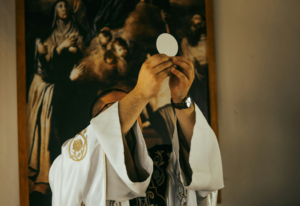Wounds of Disconnection: How Negative Encounters with Catholics Drive Young People Away from the Church
Negative encounters with Catholics can have a profound impact on young people, potentially driving them away from the Church — sometimes permanently. For young adults who become disillusioned with Catholicism, these experiences are often the catalyst for their transition into the group commonly referred to as the “nones” — those who identify as religiously unaffiliated. While the Church offers a rich tradition of sacramental life, theological depth, and community, when Catholics act in ways that are judgmental, hypocritical, or unwelcoming, the effects can be deeply alienating. For many young Catholics, these encounters are not only disheartening but can lead to a complete rejection of the faith they once practiced.
The Growing Number of “Nones” in the Catholic Context
The rise of religious disaffiliation among young people is a well-documented trend, and Catholicism is no exception. Studies have shown that many young Catholics, even those raised in devout households, are leaving the Church in significant numbers. According to a 2017 study by Saint Mary’s Press and the Center for Applied Research in the Apostolate (CARA), 74% of former Catholics said they had left the Church between the ages of 10 and 20. What’s alarming is that many of these individuals leave quietly, without any formal rejection of the Church, but simply stop attending Mass and participating in the sacraments. For a large portion of this group, negative encounters with Catholics — whether in parishes, Catholic schools, or other Church settings — are often cited as key reasons for their departure.
The Impact of Catholic Hypocrisy
One of the most cited reasons young people give for leaving the Church is the hypocrisy they perceive among Catholics, especially those in leadership positions. The Catholic faith teaches a high moral standard — love, mercy, forgiveness, and humility — all of which are central to the life of a disciple of Christ. However, when Catholics fail to live up to these ideals, particularly in public or visible ways, it creates a sense of disillusionment among young people.
This disillusionment becomes especially acute when it comes to the leadership of the Church. Scandals, such as those involving clerical sexual abuse and the subsequent cover-ups by Church officials, have had a devastating impact on the Church’s credibility, particularly among the younger generation. Many young Catholics have been deeply shaken by these revelations, not only because of the horrific nature of the abuses but because they feel betrayed by an institution they had been taught to trust.
For young people, the discrepancy between what the Church teaches and the actions of some of its leaders is difficult to reconcile. This sense of betrayal can often harden into cynicism, leading them to reject the Church as an institution altogether. Many young people view this hypocrisy as evidence that the Church is more concerned with preserving its power and image than with living out the teachings of Christ, further driving them away.
Judgment and Exclusivity in Catholic Communities
Another significant factor that pushes young Catholics toward disaffiliation is the perception of judgment and exclusivity within Catholic communities. Young people today often place a high value on inclusivity, acceptance, and authenticity. They have grown up in a world that encourages the acceptance of diverse identities and perspectives, and when Catholic communities are perceived as being unwelcoming or judgmental, especially towards marginalized groups, it creates a deep disconnect.
Issues surrounding sexuality and gender identity are particularly sensitive for many young Catholics. While the Church’s teachings on marriage, sexuality, and family life are grounded in a long theological tradition, the way these teachings are communicated and enforced can sometimes feel harsh or exclusionary. LGBTQ+ individuals and their allies frequently report feeling judged or unwelcome in Catholic spaces, leading them to distance themselves from the Church.
For young Catholics who see their faith as a source of love and inclusion, these negative experiences can be especially alienating. They often struggle to understand how a Church that proclaims the unconditional love of God can simultaneously seem so unwelcoming to certain groups of people. This disconnection between the Church’s message of love and the perceived judgment they encounter in Catholic communities leads many young people to walk away from the faith.
The Role of Catholic Education
Catholic schools and universities have long been seen as an integral part of forming young Catholics in the faith. However, for some, their experiences within Catholic educational institutions can be another source of disillusionment. Many young adults who attended Catholic schools report that their encounters with Catholicism were marked by rigid rules and harsh discipline rather than a deep understanding of the faith.
For those whose experience of Catholicism was limited to rote memorization of doctrine, rules about morality, and strict authority figures, their formation in the faith may have felt more like an obligation than a source of life. When the faith is presented in this way, without an emphasis on personal encounter with Christ, the sacraments, or a loving community, young people can leave Catholic institutions feeling disconnected from the Church.
In addition, when Catholic educators fail to address the real questions and struggles that young people face in an increasingly secular world, it can lead to further disaffection. Young Catholics today are often looking for meaningful dialogue about faith, not simply a list of dos and don’ts. When their questions about issues like suffering, the existence of God, or the Church’s teachings on contemporary social issues are met with pat answers or dismissiveness, it can deepen their sense of alienation.
Clericalism and the Distance Between the Church and Laity
Clericalism — the overemphasis on the authority and privilege of clergy — is another significant factor that contributes to young people leaving the Church. Many young Catholics today desire a Church that is more inclusive and participatory, where the laity, especially women and young people, have a more significant role in decision-making and ministry. However, in some cases, the hierarchical nature of the Church can create a sense of distance between the clergy and the laity, particularly among those who feel their voices are not being heard.
When young people feel excluded from meaningful participation in the life of the Church, they may begin to question their place within it. This is especially true for young women, who may feel limited in their roles within the Church compared to men. The perception that the Church is out of touch with modern realities and unwilling to adapt can lead young people to believe that there is no place for them in its future.
Pope Francis has spoken out against clericalism, emphasizing the need for the Church to be a “field hospital” that accompanies people on their journey of faith, rather than an institution that sets itself above them. However, the gap between the Church’s ideals and the lived reality in many parishes remains a significant challenge.
Social Media and the Amplification of Negative Experiences
The rise of social media has had a profound impact on how young people relate to the Church. On platforms like Twitter, Instagram, and TikTok, young Catholics who have had negative experiences with the Church can share their stories with a global audience, creating communities of support and validation. As these stories spread, they can reinforce the perception that the Church is out of touch, judgmental, or hypocritical.
Social media also exposes young people to a wide range of alternative belief systems, spiritualities, and secular worldviews. For those who have had negative encounters with Catholics, these alternative perspectives can be appealing because they often present a more inclusive, open-minded approach to spirituality. Young people who once felt constrained by the rules and expectations of the Church may find these new perspectives liberating, further solidifying their decision to leave Catholicism behind.
Political Polarization and the Church’s Public Witness
In the United States, the Catholic Church’s involvement in political issues has also contributed to the disaffection of young people. Many young Catholics see the Church as being too closely aligned with certain political agendas, particularly around issues like abortion, religious freedom, and same-sex marriage. While the Church’s teachings on these issues are deeply rooted in its moral and theological tradition, the way they are communicated in the public sphere can sometimes appear more political than pastoral.
For young people who hold progressive views on social justice, immigration, climate change, and other contemporary issues, the Church’s perceived alignment with conservative politics can be a significant turnoff. They may feel that the Church is more concerned with maintaining its influence in the political realm than with addressing the pressing moral issues of our time. This sense of disconnect between the Church’s public witness and the concerns of young people further drives them away.
Healing and Rebuilding Trust
Despite these challenges, there is hope for the Church to reconnect with young Catholics who have become disillusioned. One of the most important steps is to listen deeply to the experiences and concerns of young people. Rather than dismissing their grievances as a symptom of a secular culture, the Church must take their stories seriously and respond with empathy and humility.
Creating spaces where young people feel heard and valued is essential. This means moving beyond simply offering catechesis and sacramental preparation, and instead fostering communities where young adults can encounter Christ personally, ask difficult questions, and engage in authentic relationships with fellow Catholics. Parishes, schools, and dioceses should prioritize outreach efforts that focus on listening to young people, addressing their concerns, and inviting them into a deeper relationship with Jesus and the Church.
Additionally, the Church must continue to address the systemic issues that have caused so much harm, particularly in the areas of clericalism, leadership accountability, and inclusivity. By fostering a culture of transparency, integrity, and mercy, the Church can begin to rebuild the trust that has been lost.
Conclusion
Negative encounters with Catholics can have lasting consequences, particularly for young people who are still forming their beliefs and identities. These experiences can lead to disillusionment, mistrust, and ultimately disaffiliation from the Church. However, the Church has an opportunity to learn from these experiences, to listen to the voices of young people, and to create a more welcoming, inclusive, and authentic community. By doing so, the Church can begin to rebuild its relationship with the next generation and invite them back into the rich sacramental life and mission of the Catholic faith.
Reflection Questions
- How can our parish foster an environment of genuine hospitality and acceptance, especially for those who may feel judged or unwelcome?
- What steps can we take to ensure that young people encounter the Church as a source of love, mercy, and inclusivity rather than judgment or hypocrisy?
- How can we, as a Catholic community, better address the hurts and wounds caused by negative encounters, particularly in the areas of leadership and community dynamics?






